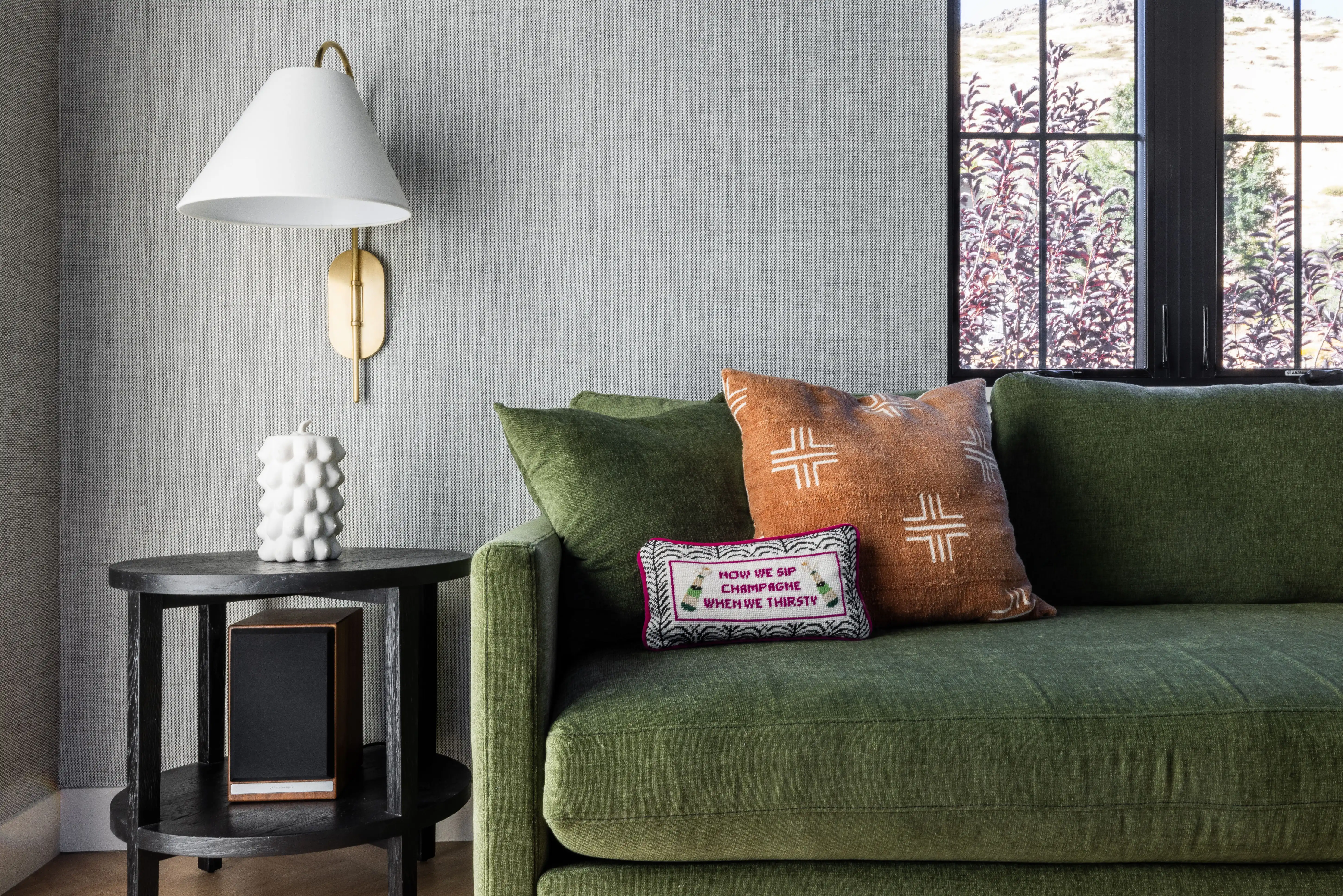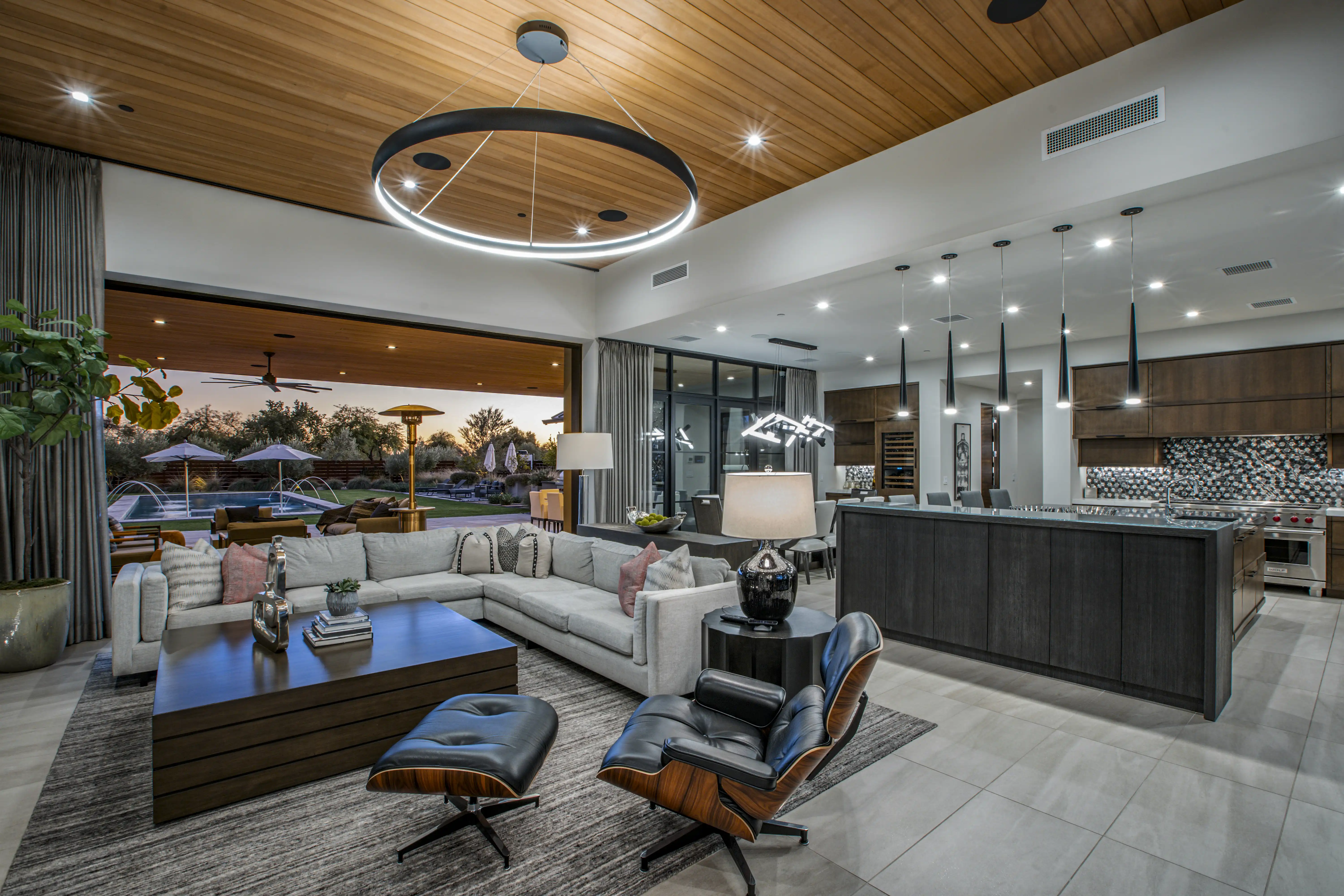Homeowner Q&A: Should I Move Out While Renovating?
%20(1).avif)
So, you’ve decided to renovate. Congrats! You’re probably feeling excitement, eagerness, maybe even a little trepidation (don’t worry – that’s normal!). And you likely have a ton of questions. Of course, your designer or builder will always be the best place to start. But since we’ve been around the construction block a time or two, we’re here to give our best recommendations to help your renovation go smoothly.
Among your uncertainties, you might be wondering if you should plan to stay in your home or move out while renovating. It probably won’t surprise you to know that whether you should stay or go really depends… on the project, your home, your personality, your patience (!!) … but there are some obvious benchmarks that can point you in the right direction. As a starting point, ask yourself the following questions to help guide you in your decision.
What spaces are you renovating?
Living in a house during renovations can be stressful – or it can be totally fine! It all depends on what part of the home you’re renovating and how much that space impacts your daily life. If you’re doing a gut remodel of your basement, you might be able to seal off the access point and minimize disturbances in your main living space. If you’re renovating a primary bedroom and/or bathroom, you obviously won’t be able to use those spaces at all during the renovation. Do you have a guest room or spare bathroom that will offer adequate privacy? Also be sure to consider which entrance your contractors will use to access the construction area. Will they be coming through your front door, or do you have a secondary entrance they can use to come and go during the project?
What’s your lifestyle like?
Consider the way you live in your home and whether your day-to-day will be severely impacted by your remodel. For example, if you work from home, a renovation will be infinitely more disruptive than if you’re out of the house from 9-5 every day. Love to cook? Your kitchen renovation means you’ll be relying on takeout and microwave meals for a few months. And if you have young children or pets, it can be more difficult to keep them contained and occupied during a renovation. Weigh these interruptions to your routine with the benefits of being at home.
What’s your tolerance for noise and disruption?
This one might feel obvious, but be honest with yourself. Will banging, sawing, and drilling drive you crazy all day? Or can you tune it all out like white noise? This one is particularly relevant for the work-from-home crowd, so consider whether you’re involved in daily calls and video meetings. If you’re not keen on moving out but still can’t handle daytime noise and foot traffic in your home, consider a temporary hot desk at a co-working space, a more cost-effective alternative to temporary housing during a home renovation.
Do you have allergies?
It might seem like an irrelevant detail, but trust us – it’s not! A renovation project, no matter how big or small, means one thing is inevitable: dust. Your builder should set up dust protection around the work area to seal it off from the rest of the home, but air vents and the nature of construction make it almost certain that dust will escape to other areas of your home. If you have major allergies, you might want to consider living elsewhere for the duration of your project – your sinuses will thank you.
What’s your budget?
Of course, one of the most important factors in your decision will be whether you can afford temporary housing while you’re renovating. Keep in mind that construction can be unpredictable, so having a little extra cushion to extend your temporary housing during your renovation might be wise.
In the end, here’s our two cents: you definitely don’t have to move out while renovating, but you might be happier if you do – particularly during a major remodel like a kitchen or primary suite. You’ll be separated from the day-to-day stressors that come along with construction, making the entire process a little smoother for you and your builder. And if it’s too much of a stretch financially, stay home and don’t worry – there are plenty of other ways to minimize the intrusion of a renovation. But that’s another post for another day!



